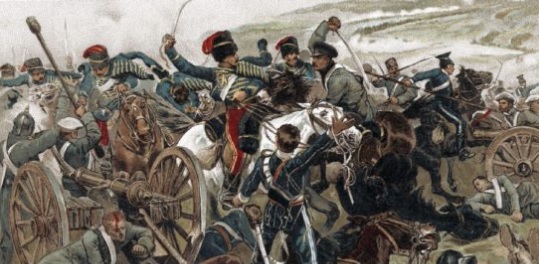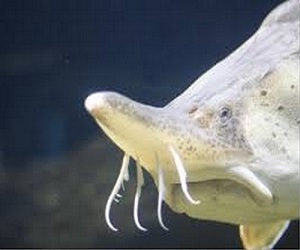Crimean War 1853-1856
Russia against an alliance of European powers
The Crimean War took place from October 1853 to February 1856. It was a conflict which involved Russia against an alliance of Britain, France, the Ottoman Empire, Sardinia and the Austrian Empire. The Crimean War was fought mostly in the Crimean Peninsula.
It began as Russia pursued an expansionist policy as the Ottoman Empire was in decline. At dispute was the rights of the Ottoman Empire’s Orthodox Christian minority in the Holy Land as negotiated in the Peace Treaty of Kϋϛϋk Kaynarca that ended the Russian-Turkish war of 1768. According to the treaty Russians were given responsibility to guard the interest of the Orthodox Christian minority in the Ottoman Empire, but France, a Roman Catholic country, claimed that responsibility and sovereign authority over the entire Christian population. In order to assert its power over Russia’s expansionist policy, Napoleon III sent his most technological advanced ship, the Charlemagne, to the Black Sea.
Ottoman leaders favored the French. Russia responded by invading the Ottoman controlled Danubian principalities of Moldavia and Wallachia, today these territories are part of Moldova and Romania. Russians destroyed the Turkish squadron in the Battle of Sinope in 1853.
Austria threatened to get involved in the war if Russia did not withdraw from the Danubian principalities. Russia withdrew and Austria temporarily occupied them. Russia expected Austria to back them since Tsar Nicholas assisted Austria in suppressing the Hungarian Revolution in 1848 but Austria felt threatened by Russia’s expansion. Catherine the Great had already annexed Crimea in 1784 and Nicholas was following her policy of geopolitical domination.
France and Britain, the superpowers of the time, feared Russia’s domination of the Black Sea and declared war on Russia in March 1854. The Black Sea was an important part of the trade routes to India and Egypt therefore their interest in protecting it. In 1855 the Kingdom of Sardinia-Piedmont, modern day Italy, joined the war contributing 10,000 men. The target for the allies was to destroy the Russian Naval base of Sevastopol, Russia’s stronghold in the Black Sea.
Major Battles
The three major encounters in the Crimean War were the Battle of Balaklava, the Battle of Inkerman and the Battle of Malakhov.
The Battle of Balaklava took place in October 1854. Russians attacked the allied base of Balaklava while two British units, the 93rd Highlanders and the Light Cavalry Brigade, held out against the Russians. The Light Brigade was sent on an almost suicidal mission against the heavily armed Russian forces. Of the 700 men, 278 were killed or wounded. Their purpose was to frighten the Russians and to scatter them. The Light Brigade was memorialized by Alfred Lord Tennyson in the famous poem “Charge of the Light Brigade”. This failed campaign was followed by another bloody encounter, the Battle of Inkerman in November with the allies coming in victorious.
In February 1855 the Russians attacked Eupatoria, an allied base, and were defeated. In the meantime, the allies had surrounded Sevastopol while Russians retreated to the Malakhov bastion. French forces assaulted their base causing the collapse of Russian defenses and forcing them to evacuate Sevastopol. The city of Sevastopol fell on allied hands on September 9, 1855. Other minor encounters took place in the Baltic Sea and the Caucasus.
The Treaty of Paris
Representatives from Russia, Turkey, France, Britain, Sardinia, Austria and Prussia participated in peace negotiations which resulted in the signing of the Treaty of Paris on March 30, 1856, marking the end of the Crimean War.
The Treaty of Paris allowed temporary peace in Europe. One of the terms of the agreement and perhaps the most difficult to accept was the proclamation of neutralization of the Black Sea. Russia and Turkey were not allowed military fleets, forts and arsenals on the coast of the Black Sea. The Black Sea straits were closed for military vessels of all nations. Russia and Turkey were only allowed a limited number of light military ships for patrolling purposes.
Under the treaty Russia returned Kars to Turkey in exchange for Sevastopol, Balaclava and other captured cities.
The treaty also established freedom of navigation for international merchant ships along the Danube and in the Black Sea. It opened new markets to French, British and Austrian goods damaging Russian exports to its traditional markets.
In 1871 at the London Conference, and after a long diplomatic effort, Russia repealed the clause of the Treaty of Paris referring to the neutralization of the Black Sea. Russia claimed the need to protect its southern border and reestablished its Black Sea Fleet in Sevastopol.
Category: History


